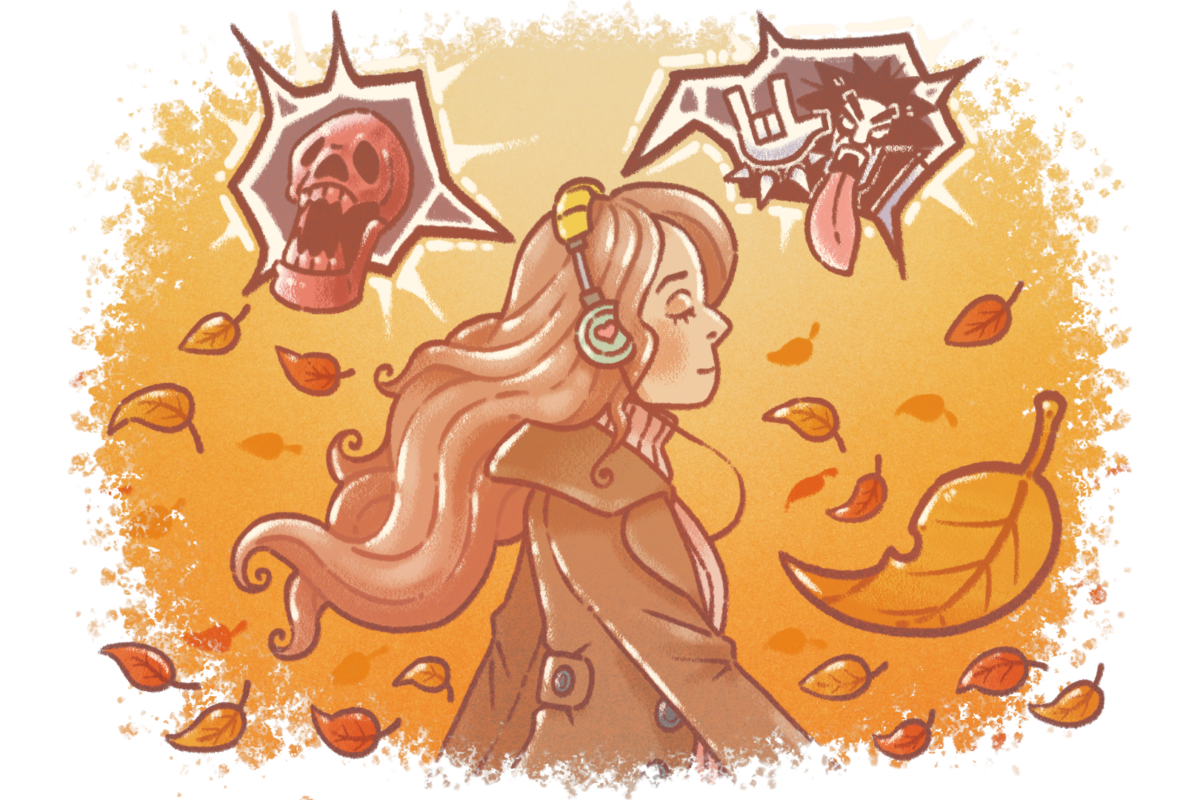Learn how The Concordian’s team enjoys music during midterm season.
It is no secret that music can boost motivation and increase energy while also proving soothing and stress-relieving. Here is how some of our staff choose to listen to music with schedules packed with midterm deadlines. Whether you are simply curious of disparities between music listening habits in high stress or seek new focus and concentration music to add to your playlists, look no further!
Emma, News Editor: “I usually like an upbeat tune playing on my record player. If I listen to slow songs or classical music, I won’t be able to concentrate. When I’m studying, I’ll play Bad Bunny’s albums, “The Queen is Dead” by The Smiths and some of their singles. My record player has a bluetooth setting, so I’ll connect my phone to it and play Bad Bunny or I’ll go through my vinyls and play The Smiths. It’s such great motivation music and I feel like I can get through my homework and anything by going all out with what I’m listening to. I also have ADD and sometimes it’s hard to stay focused all the time, but for me, upbeat music keeps me motivated to get things done.”
James, Creative Director: “I have always listened to Homework by Daft Punk when I want to get in the groove of an essay or big project! The fact that it says “HOMEWORK” on the album cover serves as a reminder to stay focused every time I look at my phone and I find the repetitive but energetic energy of the music to be a great way to keep me on track. The sound is a little abrasive, so I don’t fall into the trap of getting too comfortable and getting distracted and it also doesn’t have too many words so my brain can focus on the words I’m trying to write!”
Matthew, Assistant News Editor: “I like listening to jazz while I study and do things. It fits the atmosphere very well especially since the weather is getting colder. Chet Baker is my go-to, otherwise I mostly exclusively play instrumentals. Another favorite is the artist Sewerslvt, who is retired now but she has a wide array of electronic music. It ranges from really hyper to slow and melancholic. For me, this music is mainly for writing while jazz is for studying!”
Stefano, Assistant Music Editor: “When it comes to studying, I either opt for specific albums and playlists or no music at all. Benny the Butcher’s Tana Talk 3 (2018) has always been a go-to for me due to its simplicity. The album is mostly boom-bap beats with a minimalist, nocturnal, and airy sound. Alfredo by Freddie Gibbs & The Alchemist is another example: at only 10 tracks and 35 minutes, it creates an entrancing, moody atmosphere—thanks to a combination of jazzy, soulful instrumentals and grittier boom-bap inspired ones. This explains why I also listen to The Alchemist’s instrumentals to study: the genres in these instrumentals are soothing, relaxing, and even hypnotic when looped into a full beat. The cohesive mood and setting created in these projects also makes them optimal for full listens since the slow-tempo and groovy qualities are calming, which allows me to focus. I use headphones very often, although sometimes I tend to let my vinyl collection just spin in the background. Plus, getting up to change the records helps put little breaks in between my studying, creating intervals (which is often recommended by professors & professionals).”
Mackenzie, Copy Editor: “Normally, if I’m in a noisy and busy environment, I’ll prefer to put on music in my AirPods with noise cancellation. Music is always better than the buzzing of activity for my concentration. I’ll choose either a lo-fi comfort playlist or my Autumn Vibes playlist, which currently consists mainly of indie folk songs. However, the music I pick for studying always has to be very familiar to me to avoid me getting irritated by unknown sounds and lyrics. If I’m home and it’s relatively silent, I usually stick to the silence. I feel that adding music in this situation only makes it harder to focus and I spend more time choosing music than actually working. If I do decide to put on music in a quiet place, I prefer instrumental lo-fi playlists that I’ve precurated. I used to always have music playing when I studied in high school or cégep, but university made me a bit more tired and overstimulated, hence the newfound pickiness.”
